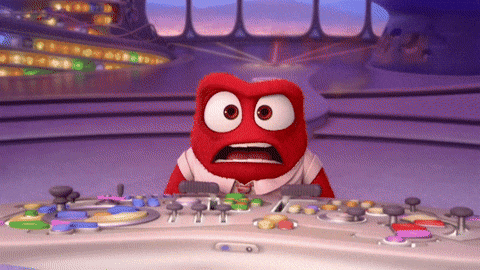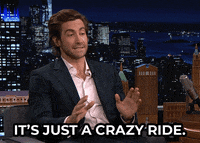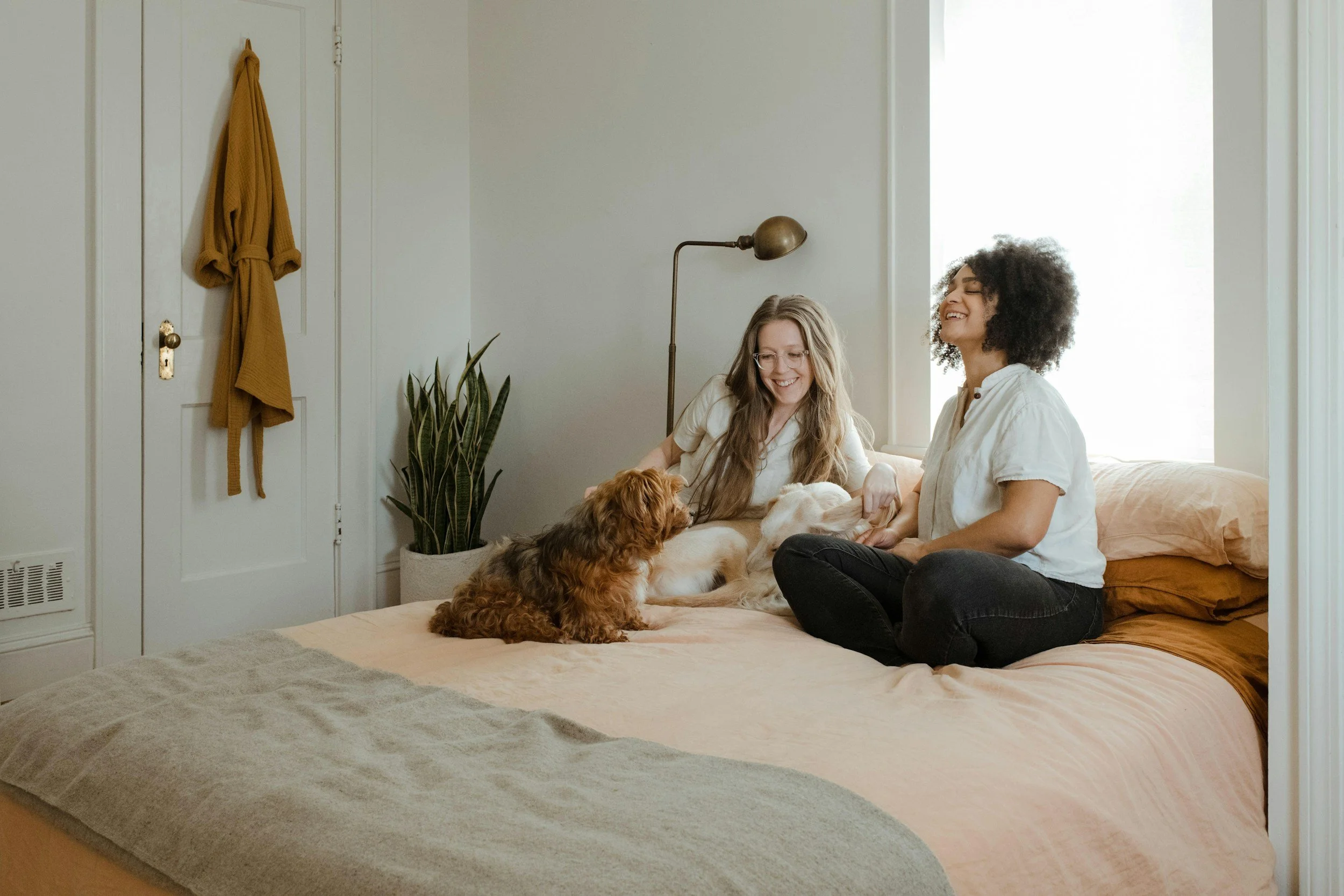The Problem With Bog Standard Goal Setting (and How to Shake Things Up in 2022!)
That time is upon us! The year is coming to a close and we’re reflecting and getting excited about what goals we want to set for the new year.
I will forever be a new year enthusiast. Yes, I get tired of the same old ‘new year, new me’ twaddle, and I’m already rolling my eyes at the targetted ads I’m about to get on Youtube selling me some grand vision of 2022.
Buuut at it’s core, the turn of a new year provides a fresh start. An opportunity to pause, celebrate how far you’ve come, think about what’s next and set plans in motion to make it happen.
However I want to wage a war against the bog standard ‘normal’ way of setting goals, because my guess is that as you set your goals for the New Year there’s already part of you expecting to fail. A part of you wondering if it’s just another year where you make big plans that you can’t seem to follow through with.
So I want to talk about the problems I’ve seen in my clients when they’re setting goals, and overcoming obstacles to goals and offer you something different to try in 2022!
What we’ll cover:
The key components of goal setting
Why thinking is a problem
Why this problem matters
What you can do instead to achieve your goals in 2022
Why it works (the sciencey bits)
Your ‘Bog Standard’ Goal Setting
There are three crucial elements in setting and achieving your goals. I’m not gonna over egg this explanation, ‘cause I know you’re someone who knows goal setting pretty well already. But this sets the scene for what I’m going to cover later when I talk about an alternative way to approach these three elements.
Knowing Your purpose
Simon Sinek’s TED Talk How Great Leaders Inspire Action says it best when he explains ‘people don’t buy what you do, or how you do it, they buy WHY you do it.’ The same principle underpins your personal purpose. Motivation to achieve your goals is hugely driven by what your ‘why’ is.
There are lots of different tools out there to help you understand your purpose. You may have written a list of what’s important to you, or tried self-coaching questions such as:
What’s important to me in my life?
What motivates me?
What brings me joy?
These are all very valuable questions to think about, but I’m guessing that’s how you’ve answer them so far… by thinking.
Creating Your Vision
Whether it’s a vision for your life as a whole, a specific time period e.g. 2022, or an area of your life e.g. relationship, career, having a vision is an important guide post to help you set your direction and define your goals.
Similar to understanding your purpose, you may have tried answering some questions to form your vision. For example:
What does my ideal life look like?
What do I want to bring to the world?
What would success look like in five years?
If you have answered these kinds of questions before during a mindfulness exercise such as a visualisation, or with a Coach - great! I consider this a ‘next level’ insight because you are going beyond just thinking about what your vision is, and actually envisioning and exploring what you want. Otherwise you are, once again, only thinking about your vision.
Overcoming Obstacles
As I’m sure you’re aware through life experience, obstacles are inevitable when working towards a goal. As Mark Manson writes ‘life is a never-ending stream of problems that must be confronted, surmounted, and/or solved.’
Perhaps you lose motivation. Or life circumstances change which makes working on the goal more difficult. Or you fail and become disheartened.. and so on…
These are all obstacles to be overcome, and in doing so you’ve probably thought about the best way to do that. Reflecting on questions like:
What went wrong?
How can I get back on track?
What are my next steps?
What can I do differently next time?
All valid questions but again, you’ve been thinking about the answers (can you see a theme emerging?). Thinking is limited.
An important note
I’m not saying self-reflection questions and thinking about your vision and goals is a totally trash way to do things. It’s still very valuable in setting and working towards your achievements. BUT, thinking is limited in what you can come to know about yourself and the way you solve problems. And if you are struggling to achieve your goals, there’s an alternative way of doing things that unlocks new perspectives and solutions.
But first let me explain why…
Why thinking is a problem
Ever had a great idea whilst cleaning the house? Or solved a problem that’s been nagging away at you whilst in the shower? (76% of people report having their best ideas in the shower!)
That’s because our ability to be creative and problem solve is heightened when we are in an environment that is distraction free, where our minds can wander and where we our moving or using our bodies.
Yes you are still thinking but you’re using more than just your head brain.
We’ve mistakenly come to think of our brains as computers. That we put information in, it’s processed, then output is created. But we are not computers. In fact, Cognitive Science researchers have found that our choices can be transformed by physical interaction with things.
We are relational beings, we come to learn about ourselves and the world around us by interacting with it, not by living in our heads trying to think through everything. And this is no different for self understanding, and goal setting.
Why it matters
It matters because I see so many people falling into the same patterns. Setting a goal based on what they ‘think’ their life purpose should be, but one that’s not connected with who they are and what they want. Struggling to achieve their goals because they repeatedly hit up against the same obstacles and are discouraged by being unable to overcome them.
Starting the new year with big plans, but deep down expecting to fail because nothings changed since the last time they tried.
I care about this because there’s a different way of doing things that allows you to see your vision and goals from a new perspective and be more resourceful in overcoming obstacles. Plus, it’s an interesting and fun way of doing things and if developing ourselves and our lives isn’t fun, why are we doing it?
So come try something new with me…
What you can try instead
I’m gonna talk you through each of the goal setting elements I described above, and how you can use LEGO to decide your goals instead, with an example of how i’ve done this to bring it to life.
Build Your Purpose
When I was working out what my Purpose for Courageously You was (i.e. my life purpose), I first built the problem that I wanted to help solve in the world. This is what it looks like...
It represents people feeling crushed under the weight of expectations of others, overthinking the choices they make, and feeling inferior in the relationships they have. All the while not realising there is a reserve of colourful, wonderful magic (i.e. who they are and what their strengths are) out of sight behind them, waiting to be brought into the forefront.
Building my purpose in this way helps me to set goals, because in physically moving the pieces around from the problem I see to the vision I have, I understand what steps I need to take, in a way I couldn’t figure out before.
Build Your Vision
My Vision for Courageously You is:
“A reality where you embrace all of who you are and have the tools to manage overthinking, doubt and insecurity, so you can bring yourself into your relationships and life with confidence.”
I built it out of LEGO as part of my process to be able to articulate it in words. Here it is.
Everything used in the model is intentional and represents something for me.
It’s helpful when I’m deciding my next set of goals, as it’s a physical reminder of the point of what i’m doing, and again the relationship between this and my purpose can be physically moved around to understand what actions I want to take next.
Build Your Problem (and find ways to overcome the obstacles)
I was recently feeling overwhelmed with what I was trying to achieve and I couldn’t figure out why. So I built the problem I was having out of LEGO.
I realised creating this build that I knew the path to my ultimate goal, it was clear. But there were various other projects taking my time and energy that made the goal feel hazy and unattainable.
By creating it physically I understood the problem better, and each day would re-visit the build to decide the next step I wanted to take to solve this problem, by physically moving the pieces around and tracking my progress.
Why it works (the sciencey bit)
(I’ve based these benefits off Michael Ferne’s book The LSP Method which talks in detail about the LEGO Serious Play Method - a specific, facilitated LEGO process that I use in my workshops to help people understand themselves better and solve their problems.)
Flow
Flow is the state we experience when we are fully consumed by an activity. Losing our sense of time and feeling fully present. This sets the right conditions for us to achieve peak performance and experience. Using a hands on tool such as LEGO encourages flow because it’s creative and playful and focuses our attention on the current moment.
Constructivism
“You literally see what you’ve built from different perspectives.”
Many learning theorists and researchers have shown that people are not passive learners (Piaget, Bruner, Dewey). We are active knowledge builders who learn from discovering, experiencing and interacting with the world around us. We construct new knowledge based on our existing experience and mental models.
There is an active, reciprocal process between us as the learner and the object of what we are trying to learn. When we apply this to self understanding and goal setting LEGO is a valuable tool to help us construct this knowledge. By creating a physical object such as our vision or our problem, we can then interact with it. We literally see it from different perspectives and change our own mental models.
Metaphor
Metaphor is a brilliant way to make sense of something new by relating it to something we already know. It’s particularly powerful for goal achievement because it allows us to access some of our deep-seated thoughts and beliefs, and use metaphor to change them - changing these beliefs about ourselves leads to more successful and sustainable behavioural change.
Play
Using LEGO is fun. If you put LEGO in front of adults, no matter how serious they think they are, they’ll automatically get into play mode. And that’s really what play is, not an activity but a mindset. Engaging in playful activities fuels this playful mindset.
Adults with playful traits have been found to be more resilient, have a better overall sense of wellbeing and have better work performance outcomes.
Play (as well as flow) also creates a different experience and having a different experience is what opens the door to us creating a different result - which is why I’m so fired up about using play to set and achieve your goals!
Storytelling
Our brains are hard wired for stories. Brene Brown does an excellent job of telling stories through her social research, and talks about the power of storytelling herself.
“Storytelling helps us all impose order on chaos—including emotional chaos.”
We are used to telling ourselves stories in our own heads. Stories about what we are capable of, stories about what others think of us, stories about who we are and who we can’t be. It’s part of how we make sense of this chaos.
Building, for example, your vision out of LEGO encourages storytelling because the model serves as a representation of your inner world that you can talk about. It brings your stories out of your head, so you can see them objectively and re-tell the story with conscious control of the narrative and the steps you want to take next.
What now?
I’ve explained why I think thinking is a problem, and how it puts a limit on your goal achievement. And i’ve shown you how I’ve used LEGO to construct my purpose and vision and how I use it to overcome obstacles, along with some of the reasons why LEGO is such a great tool for self learning and goal achievement.
What do you think? Email me rachel@courageouslyyou.co.uk or if you’re thinking ‘YES I NEED THIS IN MY LIFE’ leave me your details below…
Are you ready to shake up how you achieve your goals in 2022?
In January I’m hosting an online LEGO Goal Discovery Workshop, limited to 6 places. Leave your email below and I’ll send you more information.

















I help late diagnosed ADHD folk make career and life decisions they trust. ICF Certified Coach, Youtuber & Writer.